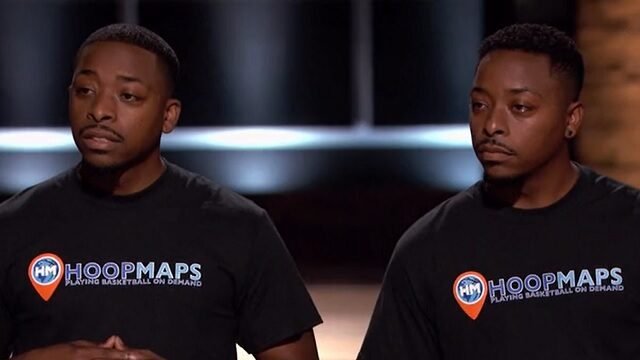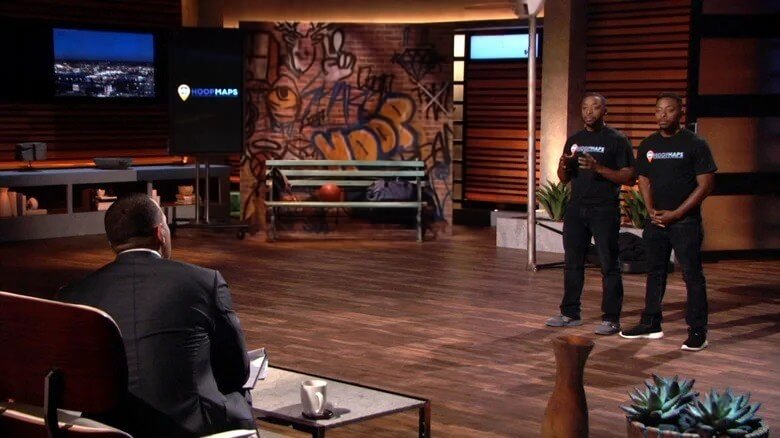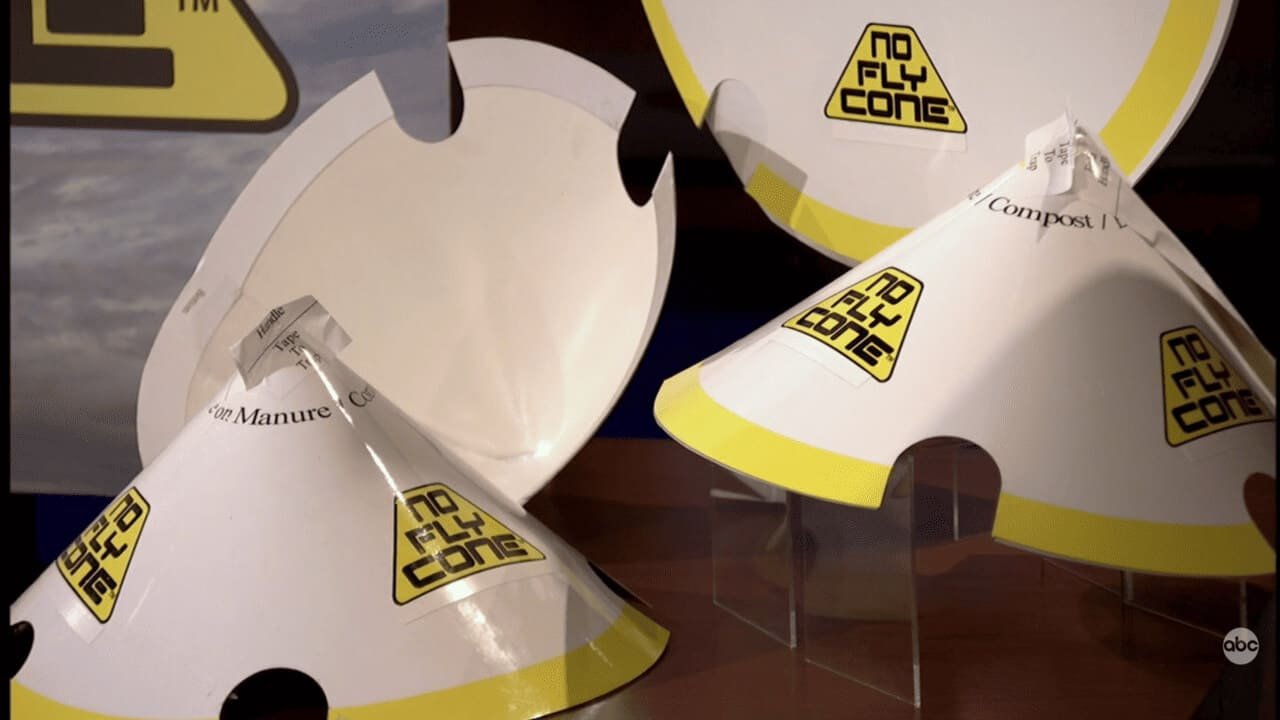Let’s bust a myth right up front: Not every Shark Tank pitch ends in a deal—and sometimes, that’s the story worth telling. HoopMaps came in with an idea every basketball player has wished for at least once: a way to find and organize pick-up games anytime, anywhere. Sounds like an easy slam dunk, right? Well, on SharkWorth, we break down the real game. Let’s get into what really happened when HoopMaps met the Sharks and where they landed after the buzzer.
Contents
ToggleFounders Behind the Play: Who Are Donte and Dominic Morris?
Behind HoopMaps are Donte and Dominic Morris, twin brothers from Oakland. You can smell the streetball hustle just hearing their story. These aren’t guys who just coded in a basement—they played the game, lived it, and saw a hole in how hoopers connect.
Donte and Dominic grew up in the Bay, where basketball is a way of life. Their pitch came with that genuine energy. No polished suits or corporate talk—just real, raw passion to fix a pick-up game problem every baller knows. As someone who’s seen pitches run cold without authenticity, their belief in HoopMaps was their first real asset.

What Is HoopMaps?
Let’s make it plain: HoopMaps is a mobile app to find, join, or organize local pick-up basketball games. You open the map, see blue pins for upcoming games, and orange pins for live action happening in real-time. Set up a game, invite friends, or roll solo and link up with new hoopers.
It’s social, hyper-local, and focused on the one thing that keeps rec hoops alive—finding bodies for five-on-five. Honestly, the idea feels like a simple, obvious win. Why hasn’t this stuck before? That was the billion-dollar question at the Shark Tank table.
HoopMaps Shark Tank Pitch: How Did It Go Down?
Season 9, Episode 9. Donte and Dominic stepped onto the Shark Tank carpet and put their whole playbook on the table. Their ask: $100,000 for a 5% stake. That’s a $2M valuation—a big ask for a pure-play app with no proven money yet.
But these guys didn’t just pitch; they got Mark Cuban and guest Shark Derek Jeter onto a mini-court for a shooting contest. They knew their audience: if your dream user is a billionaire NBA owner (Cuban) or a future NBA owner (Jeter), you let them ball out.
The energy was there. Their pitch was smooth. The Sharks—everyone from Cuban to Lori Greiner to Kevin O’Leary—saw the raw vision. But this is where the rubber hits the road.

Why Did the Sharks Pass?
Now, here’s the hard truth: The product was cool, but a slick app and a good demo don’t guarantee cash. Every Shark passed.
Their main reason? Monetization. The Morris brothers planned an $8.99/month premium version, but even under cross-examination, they couldn’t sell why users would pay. There were about 50,000 registered users—10,000 were active, mostly in New York. For context, the best social apps explode to millions, not tens of thousands. Cuban and Jeter liked the hustle but wanted proof people would shell out for features.
The Sharks pointed out the typical founder trap: building something they’d use but not showing a real path to scale, sticky retention, or revenue. Ads and brand partnerships were tossed around, but you need huge numbers to make advertising work in an app. And the premium plan? Frankly, the value wasn’t obvious.
I’ve seen this movie before—founders so deep in the community they forget to ask: why would my most loyal users ever pay?
HoopMaps Net Worth: What’s the Real Score?
Let’s get down to brass tacks. No VC cash, no Shark Tank money. The app got a spark from the TV exposure—some buzz, some downloads—but there’s no evidence it ever brought in real profits or traffic after the moment passed.
If we’re talking net worth, HoopMaps is living off the fumes of recognition—inclusion in Where Are They Now rounds, and maybe a handful of new users every time the episode reruns. The founders didn’t land a deal, so we’re not seeing any multi-million dollar stories like Scrub Daddy or Bombas.
Most estimates circle the company at a modest value—enough to keep the brand scorecard alive, but not enough for a founder to buy a house in Oakland, let alone Malibu.
Current Status: Is Anyone Still Playing?
So, what’s the update in 2025? The app still hangs around in the app stores, but real traction has hit the pause button. There’s no fire on social, no major feature updates, and no sign of a big comeback partnership.
The user community never broke out of its core pockets—mainly New York and Sacramento. The founders, Donte and Dominic, didn’t just vanish. They’ve shifted gears into other tech projects and host a business podcast now—because if there’s one thing every startup vet learns, it’s how to spin lessons from a blowout loss.
The truth is, most apps die from lack of growth. HoopMaps, for all its promising vision, hasn’t shaken that fate yet.
Future Prospects: Comeback or Game Over?
Here’s my read as someone who’s survived startup rollercoasters: Unless HoopMaps finds new money, a legit tech partner, or an untapped niche, the comeback odds are slim. The feature set hasn’t grown. No viral moment. No new investment. Without a cash influx or a wild pivot, there’s no real runway left.
Yet, here’s a lesson for every side hustler. Sometimes, the win isn’t the business—it’s what you do after it stalls out. Donte and Dominic have name recognition, a list of hard-won contacts, and the battle scars to prove they went bigger than most. They took a shot, took their licks, and stayed in the wider tech game.
And if you’ve ever run a startup, you know that’s half the battle—knowing when to double down, and when to move on.
Conclusion: Lessons from the Grind
Let’s call it how it is: Shark Tank gives you a chance. Guts get you on the show, but product-market fit, growth, and repeatable revenue make you stick. HoopMaps had hustle, but the scale wasn’t there. The Morris brothers were passionate, but the path to real money was too fuzzy for the Sharks.
Still, there’s no shame in taking your shot live on national TV. Every founder watching can learn something: be clear on who pays, why they pay, and how you go from side project to player. That’s what SharkWorth is about—spotting the real wins, and knowing when the highlight reel is over.
FAQs for Side Hustlers and Shark Tank Fans
1. Is HoopMaps still in business or available for download?
Yes, the app lingers in stores, but active business is a stretch. Little traction or news since their Shark Tank days.
2. Did any Shark invest in HoopMaps?
No. Not one. All five—Lori, Kevin, Barbara, Mark Cuban, and Derek Jeter—passed after questions on revenue and growth.
3. How many users did HoopMaps really have at its peak?
At pitch time, there were about 50,000 signups. Daily active users hovered around 10,000, mostly in a handful of cities.
4. What happened to the Morris brothers after Shark Tank?
They leaned into other ventures—including a business podcast—and stayed in the tech and entrepreneurship lane.
5. Did HoopMaps ever launch their premium subscription or make money?
The $8.99/month premium plan never got rolling at scale. There’s no evidence of meaningful app revenue afterward.
6. Is there a competitor app that does what HoopMaps tried?
Several apps attempted the find a pick-up game angle, but none have dominated nationwide. Local Facebook groups and WhatsApp chats are still the go-to.
7. Was HoopMaps featured in any media after Shark Tank?
Some tech blogs and basketball media covered their pitch, but the buzz faded once the app stopped growing.
8. What’s the biggest lesson from HoopMaps for new tech founders?
Never pitch a dream without real numbers. Passion is step one; scale, retention, and clear revenue get you over the hump. Don’t chase features—chase sticky users and repeatable cash.
If you’re hustling right now, remember: it’s better to shoot your shot than stand on the sidelines pretending to have all the answers. That’s what makes a real Shark Tank founder, and why SharkWorth keeps it real.










